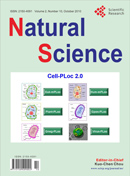 The European Journal of Medicinal Chemistry has published a curious retraction notice for a paper in its February 2012 issue from a group of Indian scientists.
The European Journal of Medicinal Chemistry has published a curious retraction notice for a paper in its February 2012 issue from a group of Indian scientists.
The abstract of the article,”Proton-pumping-ATPase-targeted antifungal activity of cinnamaldehyde based sulfonyl tetrazoles,” is still available on Medline:
Here’s what the abstract of the paper said about the study: Continue reading ‘Molecular characterization’ errors lead to retraction from medicinal chemistry journal







